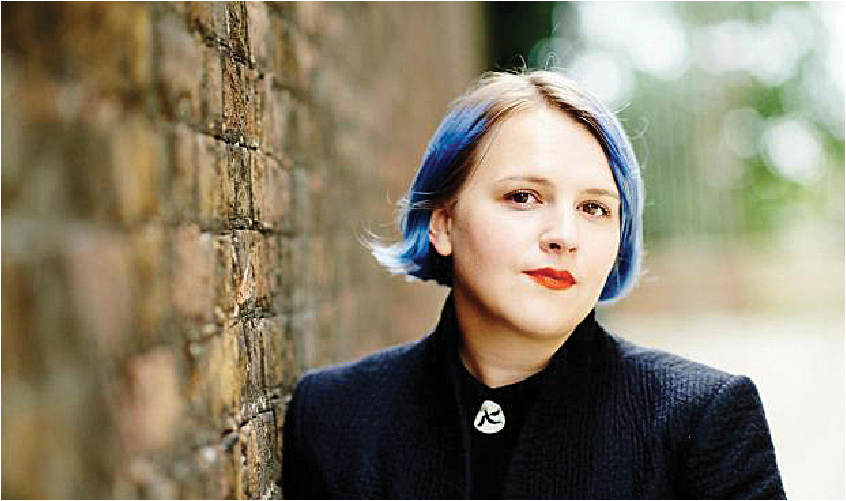Author Imogen Hermes Gowar, whose debut novel, The Mermaid and Mrs. Hancock, is getting rave reviews in Britain and has been shortlisted for numerous awards, speaks to Latha Srinivasan.
The Mermaid and Mrs Hancock is British writer Imogen Hermes Gowar’s debut novel, and it has caused quite a stir in the publishing world. Gowar has written a historical novel that ventures into the world of Georgian London. The story grew from her Curtis Brown Prize-winning MA dissertation, and the book went on to be shortlisted for the inaugural Deborah Rogers Foundation Writers’ Award. The novel was also a finalist in the Mslexia First Novel Competition. With her debut novel, Gowar finds herself as a strong contender for the Women’s Prize long-list, and the £30,000 award which is to be announced on 6 June 2018. In an exclusive chat with Guardian 20, Gowar talks about her new novel, historical fiction and Indian authors.
Q. Why do you like historical fiction as a genre of writing?
A. I love history, and I’ve always tried to place myself imaginatively in other people’s shoes. I write contemporary short fiction, but the challenge I set myself when I start a novel is to understand a lifestyle and mentality different from my own, and so far they’ve been historical.
Q. The Mermaid and Mrs Hancock seems to have an aura of Jane Austen around it.
A. I like Jane Austen’s novels for their intelligence and keen observation: she is very smart about how pragmatically young women had to think about their marital prospects, and that’s certainly something that informed my own writing. But I I think I got more from her letters and juvenilia. Her teenage works (like Lesley Castle or Jack and Alice) are full of wit and exuberance and respond to the frank and even bawdy 18th-century literature contemporary with the period in which The Mermaid and Mrs Hancock is set. We think of Austen as very decorous and proper, but she was still a product of the 18th century, and she knew what was what. Her letters can be very wicked, and I found her humour, voice and observations very useful in my research.
Q. What is it about Georgian London that attracted you?
A. I lived in London for most of the time I was writing the book, and I’ve always found its history irresistible. I could never walk down a street without thinking about what had happened there in the past—who lived there; what reputation the area had. That’s just how I am. I like Georgian London because it was such a global hub at that point, full of new
to me.

Q. You’ve been inspired by artefacts before. What was the inspiration for The Mermaid and Mrs Hancock?
A tiny mummified 18th-century mermaid in the British Museum. It’s a genuine fake.
Q. Now that this book is a tremendous success, what are you working on next?
A. I can’t tell you much as it’s in progress and who knows how it’ll change in the edit. What I can say is it’s another novel set in London but in a very different time period.
Q.Who are some of your favourite authors?
A. Beryl Bainbridge, Muriel Spark, Carson McCullers.
Q. Any Indian authors you have read?
A. As a teenager, I really admired Anita Desai and Arundhati Roy, and now I’m excited for Rijula Das’ debut Other Town. Of course, it’s an honour to share the Women’s Prize longlist not only with Roy but also Meena Kandasamy. India has it going on.

